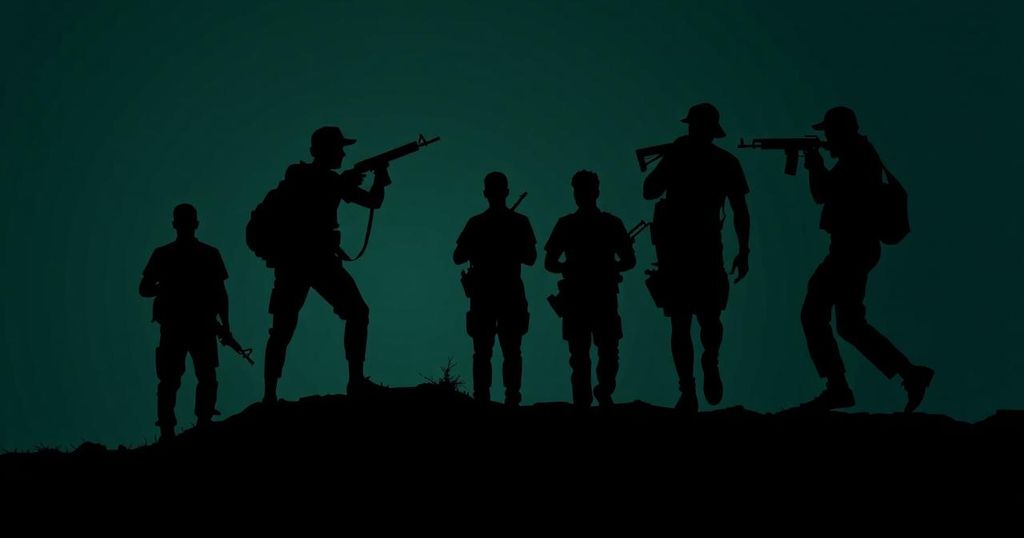Critique of the Multinational Mission to Haiti: An Unwise Intervention
The recent authorization of a multinational mission to Haiti by the United Nations Security Council, aimed at addressing the escalating disorder and violence following the assassination of President Jovenel Moïse, warrants a critical examination. Despite the intent to safeguard essential infrastructure and bolster the capabilities of the Haitian National Police under the leadership of Kenya, there exists considerable skepticism, especially among human rights advocates and leaders within Haitian civil society, regarding the efficacy of yet another foreign intervention in the nation’s affairs.
The desire for international intervention lacks sufficient justification, yet the Security Council has endorsed this precarious initiative, disregarding vital concerns. The Biden administration has actively sought a nation to lead this endeavor and has, rather problematically, settled on Kenya, despite the evident objections from Haitian civil society regarding the legitimacy of the current government headed by Ariel Henry. These leaders assert that any external intervention merely serves to maintain Henry’s illegitimate rule without fostering meaningful improvements in security. As highlighted by Alexandra Fillipova, an attorney for the Institute for Justice and Democracy in Haiti, the proposed intervention risks supporting a government that is, fundamentally, a “corrupt, illegitimate repressive government, which is responsible for creating and perpetuating the crisis.”
The legitimacy of Henry’s government is notably questionable, as it lacks a mandate from the Haitian populace. This inadequacy should have prompted a more wary approach from the Security Council; however, the mission’s approval was overwhelmingly endorsed, with notable abstentions from only Russia and China. Collaborating with an unmandated government may appear pragmatic, yet it inadvertently undermines the credibility of the United States and exacerbates instability in Haiti.
Aligning with Henry’s administration prolongs the disrepute of U.S. policies and damages potential acceptance of the international mission among the Haitian populace. The success of any foreign intervention hinges on its perceived legitimacy by the local community, an aspect compromised if viewed as a mere mechanism to sustain Henry’s authority.
Moreover, the ability of the Kenyan-led mission to enhance security remains dubious at best. Concerns have been raised about the language barriers since Kenyan forces are not fluent in French or Kreyol and about their human rights record, which includes troubling allegations of abuses within Kenya. A police force unfamiliar with the local terrain might prove inadequately prepared to confront the well-armed gangs that characterize the current landscape in Haiti. Furthermore, it is uncertain whether participating governments are ready for a prolonged commitment to such a complex situation.
While the United States has pledged logistical and financial support to this mission, insufficient oversight could lead to direct U.S. military involvement should the Kenyan-led initiative falter. Such a scenario would exacerbate the very challenges that the intervention seeks to resolve. The shadows of past unsuccessful U.S. and U.N. interventions loom large over this current proposal, which is reminiscent of previous efforts that left a legacy of abuses, including instances of sexual violence and the introduction of cholera during the 2004-2017 U.N. mission.
The historical context of U.S. interventionism in Haiti, which has repeatedly sustained authoritarian regimes, highlights the need for a reconsidered approach. The U.S. has continued to support Henry despite his unpopularity, a decision that runs counter to the calls from civil society groups for an end to such backing.
The ongoing push for a multinational force in Haiti further perpetuates past mistakes and risks entrenching the structures that have contributed to the nation’s current predicament. Critics, including Haitian-American organizations such as the National Haitian-American Elected Officials Network and Family Action Network Movement, caution that this intervention might exacerbate Haiti’s political instability, threaten civilian lives, and intensify migration pressures.
Despite the potential for these predictions to prove incorrect, it remains perilous to dismiss warnings from organizations with a deeper understanding of Haiti’s conditions than policymakers in Washington. Indeed, Haiti has historically been subject to international oversight, which has frequently led to deleterious outcomes.
Thus, enhancing humanitarian and economic aid remains a necessary approach, alongside facilitating the emergence of a transitional government free from the current leadership’s corrupt influence. A solution necessitating respect for Haiti’s sovereignty and independence must originate from within, independent of foreign police and military interventions that have historically proven ineffective.
In conclusion, regardless of the well-meaning aspirations behind the Kenyan-led mission, it is prudent to assert that such an intervention is fundamentally flawed and risks compounding the issues it seeks to resolve. It is imperative for the United States and the international community to reevaluate their approach to Haiti, prioritizing support for genuine democratic governance and development rather than transient military solutions.








Post Comment